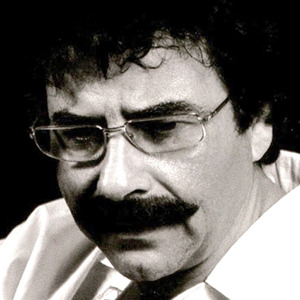علیرضا افتخاری، خواننده و موسیقیدان ایرانی، در سال ۱۳۳۷ در اصفهان متولد شد. او از کودکی تحت آموزش موسیقی قرار گرفت و نزد اساتیدی چون تاج اصفهانی، جلیل شهناز و حسن کسائی تعلیم دید. وی در سال ۱۳۵۷ در آزمون موسیقی باربد مقام اول را کسب کرد و در سال ۱۳۶۲ نخستین آلبوم خود، آتش دل، را منتشر کرد. به دلیل تواناییاش در اجرای سبکهای مختلف از جمله موسیقی سنتی، تلفیقی و پاپ، از او به عنوان مرد هزارچهره موسیقی ایران یاد میشود.
افتخاری در دهه ۱۳۶۰، علاوه بر انتشار آلبومهای موفق، کنسرتهایی در کشورهای مختلف از جمله آلمان، کانادا و ژاپن برگزار کرد. او اولین خوانندهای بود که پس از انقلاب اسلامی، اشعار حافظ را در قالب تصنیف اجرا کرد. در دهه ۱۳۷۰، با انتشار آلبوم نیلوفرانه به اوج شهرت رسید؛ این اثر با فروش بیش از ۳ میلیون نسخه به یکی از پرفروشترین آلبومهای موسیقی ایران تبدیل شد.
او دوران حرفهای خود را به سه بخش تقسیم کرده است: نخستین دوره (۱۳۶۲ تا ۱۳۷۵) که کمکار بود، دوره دوم (۱۳۷۵ تا ۱۳۸۹) که دوران اوج فعالیت و پرکاری او محسوب میشود، و دوره سوم (از ۱۳۸۹ به بعد) که در آن کمتر به انتشار آثار جدید پرداخته است. در این مدت، افتخاری همکاریهای گستردهای با آهنگسازان برجستهای چون پرویز مشکاتیان، حسین علیزاده، علی تجویدی و محمدرضا چراغعلی داشته است.
با وجود فراز و نشیبهای زندگی حرفهای، افتخاری همچنان یکی از محبوبترین و پرفروشترین خوانندگان موسیقی ایران به شمار میرود. آثار او در سبکهای سنتی، ارکسترال و تلفیقی ماندگار شدهاند. او در سالهای اخیر کمتر فعال بوده اما همچنان مورد احترام بسیاری از علاقهمندان موسیقی ایرانی است.
Alireza Eftekhari, an Iranian singer and musician, was born in 1958 in Isfahan. He received musical training from an early age under the guidance of masters such as Taj Esfahani, Jalil Shahnaz, and Hassan Kassai. In 1978, he won first place in the Barbod music competition and released his first album, Atash-e Del, in 1983. Due to his ability to perform in various styles, including traditional, fusion, and pop music, he is known as the man of a thousand faces in Iranian music.
During the 1980s, Eftekhari, in addition to releasing successful albums, held concerts in several countries, including Germany, Canada, and Japan. He was the first singer after the Iranian Revolution to perform Hafez’s poems in the form of songs. In the 1990s, he reached the peak of his fame with the release of Niloofaraneh, which sold over 3 million copies and became one of the best-selling albums in Iranian music history.
He divides his professional career into three phases: the first phase (1983-1996), during which he was relatively inactive, the second phase (1996-2010), which marked the peak of his career with numerous successful releases, and the third phase (from 2010 onwards), where he has released fewer new works. During this time, he collaborated extensively with renowned composers such as Parviz Meshkatian, Hossein Alizadeh, Ali Tajvidi, and Mohammadreza Cheraghali.
Despite the ups and downs of his professional life, Eftekhari remains one of the most beloved and best-selling singers in Iran. His works in traditional, orchestral, and fusion styles have left a lasting impact, and while he has been less active in recent years, he continues to be respected by many Iranian music enthusiasts.

